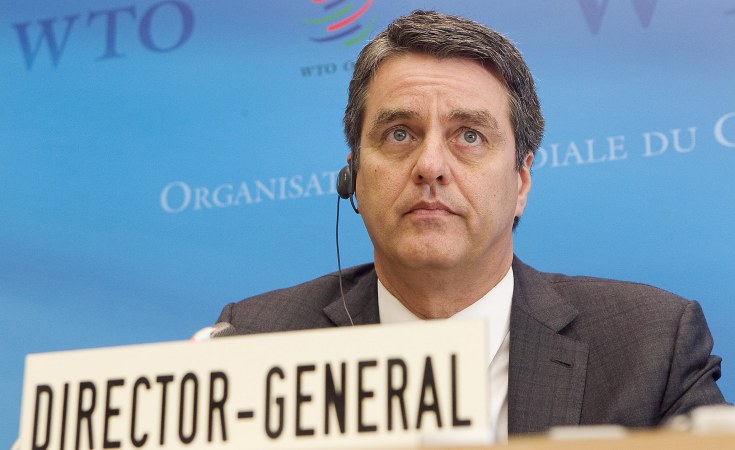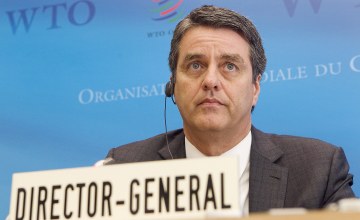Director-General Roberto Azevêdo briefed G20 leaders at their meeting in Antalya, Turkey, today (16 November) on preparations for the WTO’s 10th Ministerial Conference in Nairobi next month. In their communiqué, the leaders gave a strong call for the WTO to deliver in Nairobi and to implement all the elements of the Bali Package, including those on agriculture, development, public stockholding as well as the prompt ratification and implementation of the Trade Facilitation Agreement. However, in the meeting much of the discussion focused on regional and bilateral trade initiatives due, in part, to slow progress in the Doha Round negotiations.
The Director-General said:
“Our analysis of regional trade agreements shows no obvious conflicts with WTO rules — they all have WTO DNA. But a bigger consideration is where regional agreements cover areas that are not currently covered by the WTO. No one would suggest that regional agreements should not venture into these areas, but conversations in the WTO would definitely be more inclusive, coherent and balanced.
“Progress in Nairobi on a number of fronts — including on issues under the Doha Round — would help to strengthen trade at the global level. We are working towards agreement on issues including agricultural export subsidies and similar measures, and a package for the least-developed countries. This would be significant. We have been trying to do away with export subsidies for decades. We also need to support ratification of the Trade Facilitation Agreement and continue to implement all other elements of the Bali Package.
“But what we decide to do after Nairobi is also crucial. We have to find ways of moving the Doha issues forward and keeping the organization operational and responsive to challenges currently faced by members.
“This is particularly important against the backdrop of a persistent slowdown in trade growth, continuing protectionism and unprecedented activity at the regional and bilateral level. We must ensure that the global trading system is as strong as possible in order to boost growth, jobs and development. But for this to happen, the G20 leaders need to work collectively — they must work to find and explore synergies on a range of trade-related issues. We are not doing that now.”
The key section of the official G-20 communiqué reads as follows:
“The WTO is the backbone of the multilateral trading system and should continue to play a central role in promoting economic growth and development. We remain committed to a strong and efficient multilateral trading system and we reiterate our determination to work together to improve its functioning. We are committed to working together for a successful Nairobi Ministerial Meeting that has a balanced set of outcomes, including on the Doha Development Agenda, and provides clear guidance to post-Nairobi work. We will also need to increase our efforts to implement all the elements of the Bali Package, including those on agriculture, development, public stock holding as well as the prompt ratification and implementation of the Trade Facilitation Agreement. We will continue our efforts to ensure that our bilateral, regional and plurilateral trade agreements complement one another, are transparent and inclusive, are consistent with and contribute to a stronger multilateral trade system under WTO rules. We emphasize the important role of trade in global development efforts and will continue to support mechanisms such as aid for trade in developing countries in need of capacity building assistance.”
The World Trade Organization (WTO) deals with the global rules of trade between nations. Its main function is to ensure that trade flows as smoothly, predictably and freely as possible.



